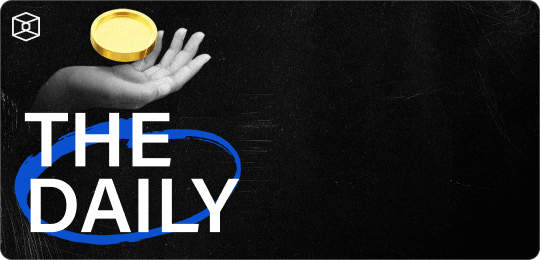California judge casts doubt on dismissing SEC's case against crypto exchange Kraken

Quick Take
- Judge William H. Orrick told the courtroom on Thursday that he was “inclined to deny” a motion to dismiss a lawsuit between the two.
- During oral arguments, Kraken and the SEC made comparisons to the agency’s case against Coinbase, among other crypto cases being litigated in the courts.

A district judge cast doubt on crypto exchange Kraken's move to dismiss claims brought against it by the U.S. Securities and Exchange Commission.
Judge William H. Orrick of the U.S. District Court for the Northern District of California told the courtroom on Thursday he was "inclined to deny" a motion to dismiss a lawsuit between the two.
"I think it's plausible that the crypto assets are offered and sold as investment contracts," Orrick said.
In November, the SEC sued Kraken’s parent firms, Payward and Payward Ventures, for allegedly operating an online trading platform. Kraken moved to dismiss the lawsuit in February. Since then, a group of eight U.S. state attorneys general filed an amicus brief arguing the SEC's lawsuit exceeded the agency's authority, while Kraken has filed multiple documents arguing the SEC has failed to satisfy elements of the Howey Test.
The Howey Test is based on a 1946 U.S. Supreme Court case frequently cited by the SEC, to determine if an asset qualifies as an investment contract and, therefore, a security. The SEC has pushed back against Kraken and has said the exchange is trying to dodge investor protections required by securities laws. The SEC has also argued that a written agreement is not needed for there to be an investment contract.
Kraken has its "work cut out" for them, Judge Orrick said on Thursday.
Comparisons to Coinbase
The SEC's case against Coinbase was also brought up frequently on Thursday. There, Judge Katherine Polk Failla decided not to dismiss the agency's case against the exchange. In that case, the SEC "plausibly" alleged that some crypto transactions on Coinbase's platform were investment contracts, Judge Failla said in March.
"Naturally this court will look to that case and its reasoning in trying to determine whether you should follow the reasoning of Judge Failla in that case," Matthew Soloman, who is representing Kraken, said in court. "We don't think you should."
Coinbase was not decided correctly, Solomon said. For example, the court created a concept called an ecosystem, which Kraken interpreted to include issuers, the blockchain, promoters and others, Solomon said. Buyers and sellers were not included in Judge Failla's ecosystem term, he added.
"Conjuring up the notion of an ecosystem just for crypto, that's not the way rules ought to be applied," Solomon later said. "Crypto deserves no better than anybody else, but they ought to have the rules applied equally to them as they've applied to everyone else. In the Coinbase decision, I think here today, the rules are being stretched to the breaking point."
Meanwhile, the SEC's lawyer, Peter Moores, said Coinbase was "correctly decided."
Moores also talked about how the Howey Test encompasses more than just an investment contract. Kraken has argued in its move to dismiss the case that there needs to be a written contract for an asset to be a security.
The Howey Test doesn't require a contract and it's about the "substance of the matter," Moores later added.
"If you're only looking at the form, you're only looking at the skeleton, you're not actually looking at the flesh that surrounds it and the flesh is really what matters. It is what gives the life to the actual investment opportunity here," Moores said.
Major questions
Kraken's lawyers previously applied the major questions doctrine in its filings asking the judge to dismiss the case. The doctrine, which has been often cited by crypto firms, says if an agency wants to decide on an issue that has major national significance, it has to be supported by clear congressional authorization. The SEC has asserted that it is not "assuming new powers."
"I don't think this is a major question," Orrick said. "It's not a significant expansion of regulatory authority."
Orrick said later in the hearing he would not change his mind on the major questions doctrine.
Toward the end of the hearing, Judge Orrick directed Kraken and the SEC to provide disclosures and said discovery should take about a year.
Disclaimer: The Block is an independent media outlet that delivers news, research, and data. As of November 2023, Foresight Ventures is a majority investor of The Block. Foresight Ventures invests in other companies in the crypto space. Crypto exchange Bitget is an anchor LP for Foresight Ventures. The Block continues to operate independently to deliver objective, impactful, and timely information about the crypto industry. Here are our current financial disclosures.
© 2023 The Block. All Rights Reserved. This article is provided for informational purposes only. It is not offered or intended to be used as legal, tax, investment, financial, or other advice.





